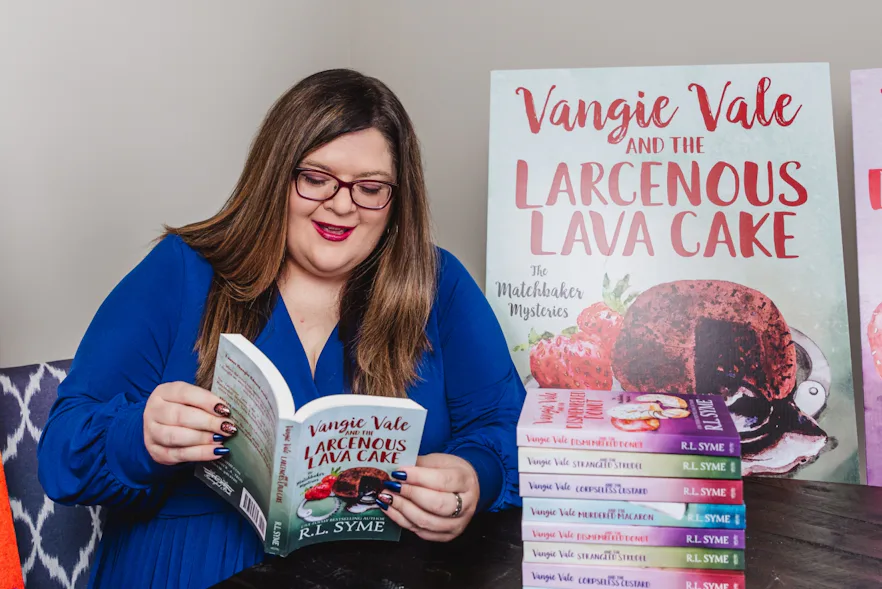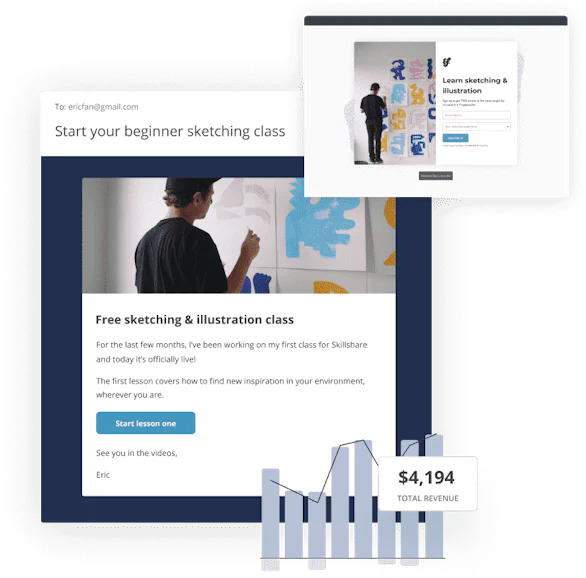Becca Syme always dreamed of getting paid for her creativity, in hopes that one day she’d have the freedom to create all the time. But this was a dream she didn’t think would ever come true, because she assumed she was incapable of ever being successful, at anything.
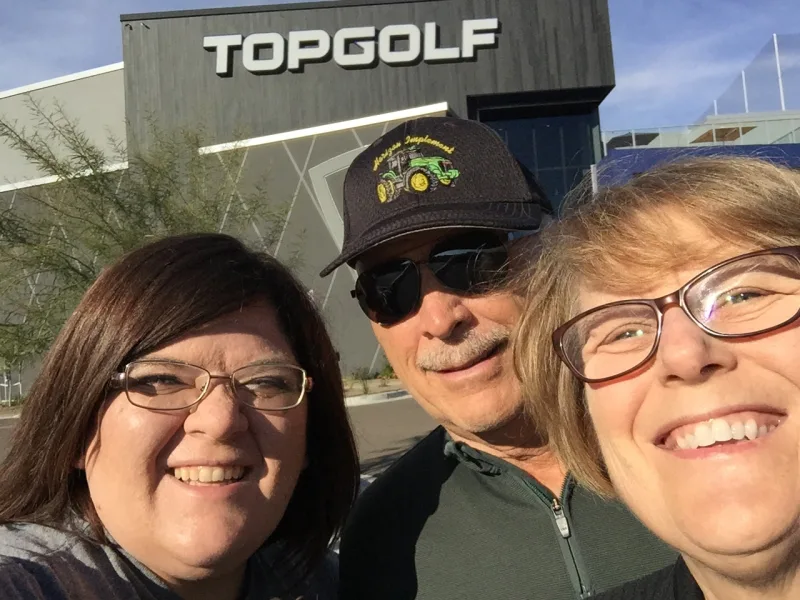
Becca’s parents were very successful in their careers, and incredibly disciplined, doing things like the 90-minute Miracle Morning without fail (a routine of ordered steps including things like affirmations, visualizations, exercise, and reading).
They never pushed this kind of thing on Becca, but she admired her parents so much and wanted to be like them. She tried their routines and was able to do them, but they just didn’t seem to work for her, and she assumed she was the problem.
I thought, I guess I’m just doomed to be flaky, and those are the words I would use: a flaky, unsuccessful waste of space.
Because I’d only ever seen it modeled in this one particular way, I thought I must not fit the model of success.
But, inspired by her parents, Becca continued to do the best she could with what she had, graduating high school, going to college, and then graduate school. And in graduate school, she took a test that would change everything.
“I walked in that room one person and walked out a different person.”
As part of Becca’s master’s degree in transformational leadership, she was asked to take a personality test of sorts called StrengthsFinder, which would then reveal her top five strengths. After the test, each student went through a coaching session with a certified StrengthsFinder coach to discuss their results.
“The test itself was innocuous enough,” Becca said. “I got the list of five traits, and I’m like, yeah this seems accurate, but also, who cares?”
But then she went to her coaching session.
I walked in that room one person and walked out a different person.
The coach didn’t just tell her her “results” and send her on her way. He listened to her first, and he noticed something in the way she talked about her parents.
“Wait wait wait,” he said, “you’re assuming the way they are wired is correct.”
“Well, of course,” she replied. “They are both very successful. My sister is like them too and she’s very successful.”
“Okay,” he said, “I need to tell you something.”
He shared with Becca the background of how the StrengthsFinder test was created, how researchers studied people at the top of a variety of fields and industries; how they interviewed the best teachers, the best Disneyland housekeepers, the best NBA players, and studied what traits and behaviors helped them rise to the top of their fields.
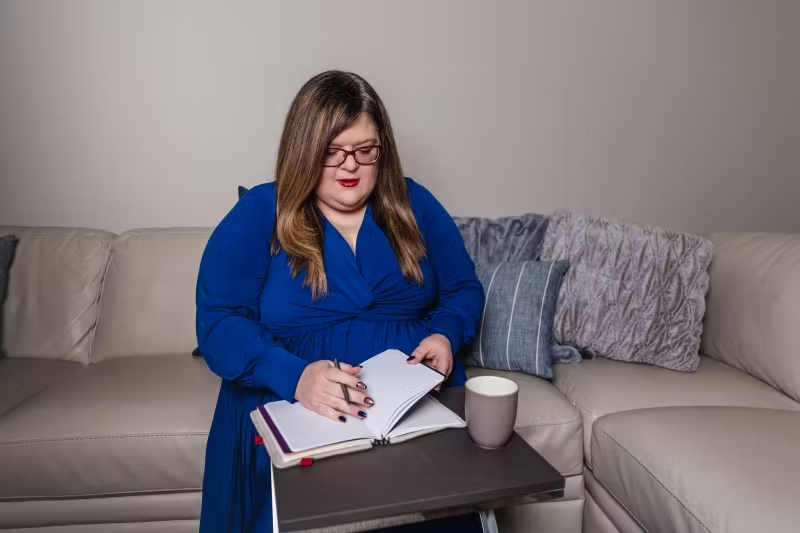
The initial goal wasn’t to create a test, but when the results showed very clear commonalities in traits, they realized they could also build a test for what they found.
And that test changed Becca’s life.
Hearing how the test was created, and knowing that the five traits in her test results were actually shared by other real successful people, shifted her entire outlook.
I always thought the way I was wired was a weakness, because I don’t fit the norm of the rest of my family or at my school (I graduated with a 3.5 GPA in the bottom 10% of my class).
I was surrounded by people who were extremely high achievers, very organized, and disciplined, and I was never like that.
I never realized it was possible to have success in any other way.
That single coaching session was a revelation, the first time she considered the idea that the way she was wired could be a good thing, could actually help instead of hinder her, and it filled her with a new sense of hope, and confidence.
I went immediately from “I have to please everyone” to “I don’t care what anybody says about me.” Because now I knew there were other successful people out there who were not doing it the way I had been shown.
It allowed me to align myself to what was true about me, rather than trying to align myself to other people’s expectations.
For the first time in her life, Becca felt capable of pursuing her biggest dreams, including one she’d had all her life: to write fiction books.
And as the test helped her discover, she was capable, and always had been. After that coaching session, she went on to make a full-time living as an author, writing 60+ books.
But what she didn’t know then is that coaching was about to converge with writing and catapult her creator business in a way she never would have dreamed.
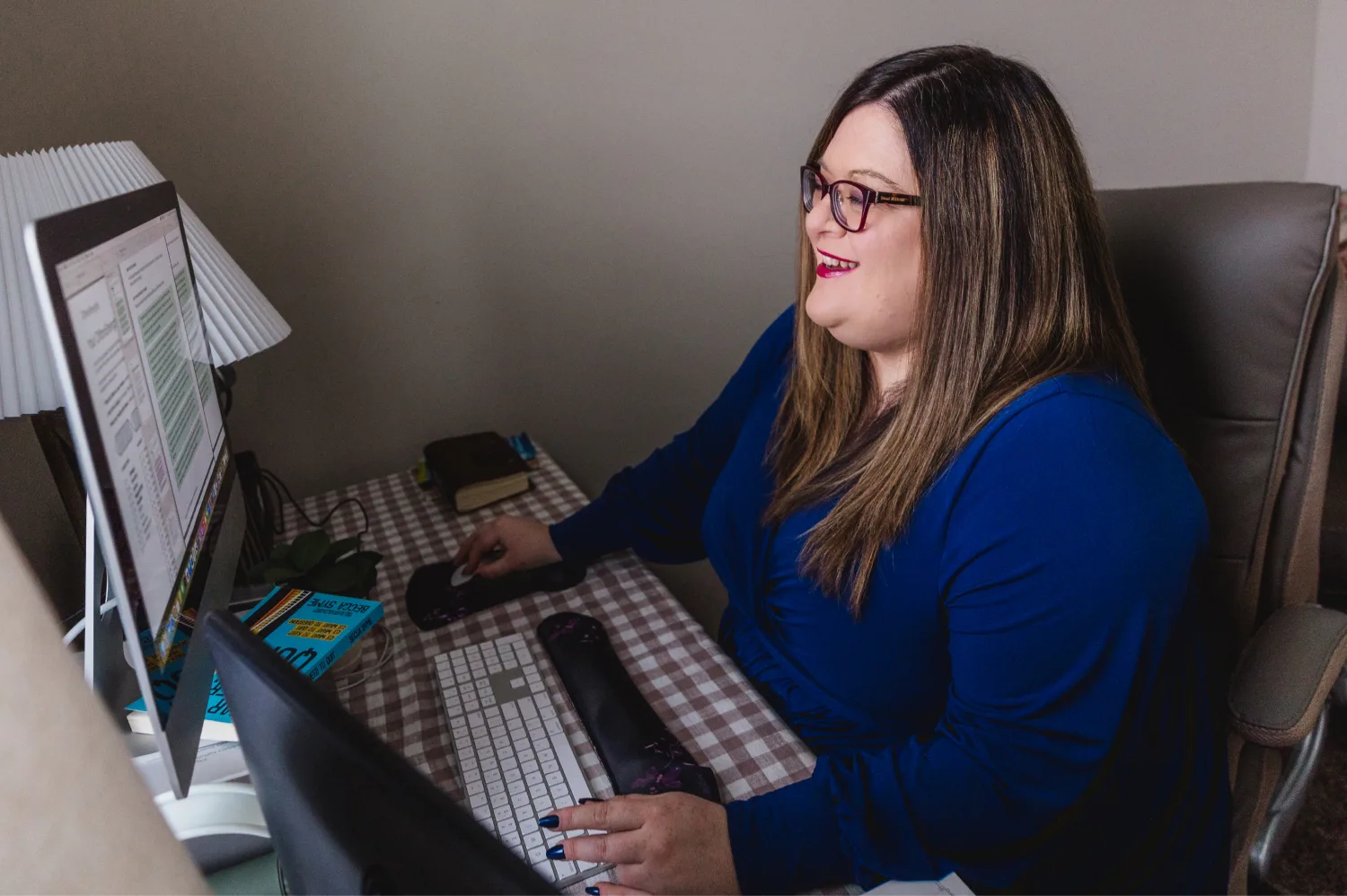
“I had to unlearn all of these things.”
But before she could launch her writing career, she had a lot of unlearning to do.
I had to unlearn all of these things that I had been taught about productivity and “good work” and “doing it right.”
I had to examine my judgments, like, “If I don’t do it this way, then I’m doing it wrong.” Then I would ask myself, “But am I? Is that actually true for me or is that just something I’ve been taught to repeat?
Like, “If you fail to plan you plan to fail,” she recites. That is true for some people, she says, but not everyone. There are people, including herself, she says, who succeed without planning.
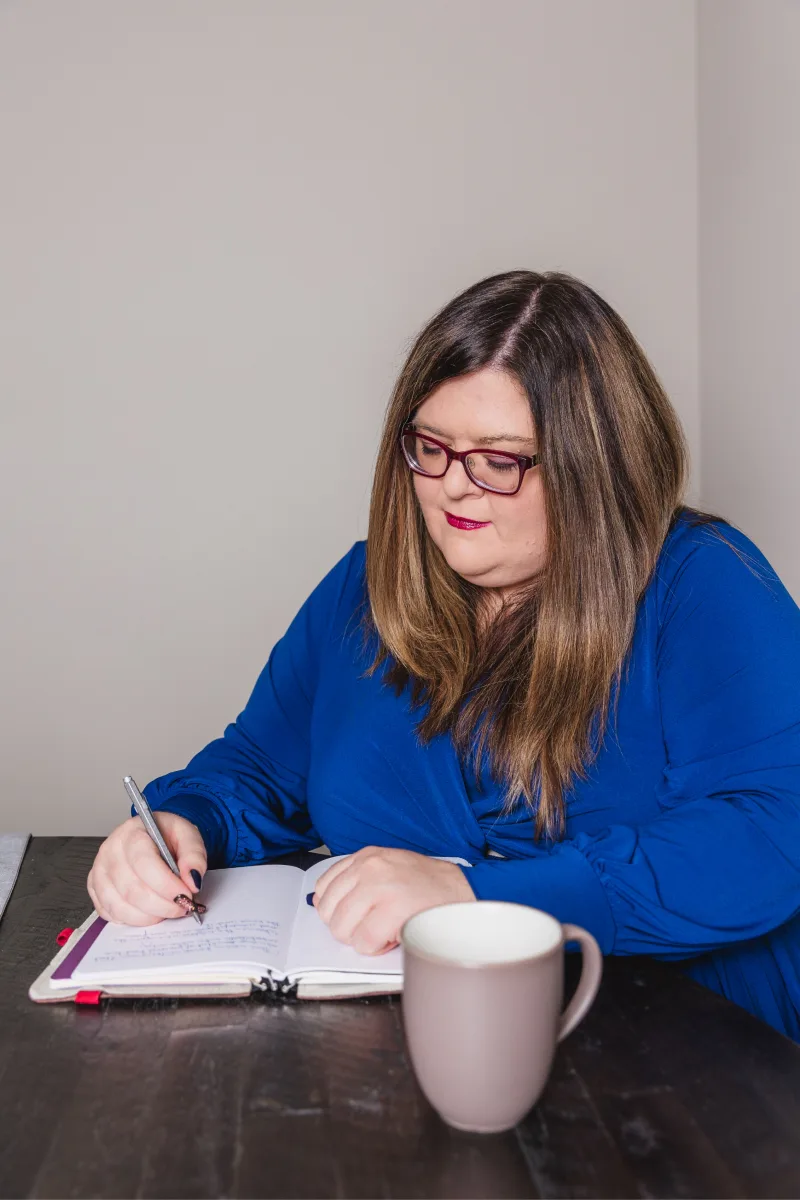
She didn’t consider all of these other methods, like her parents’ Miracle Morning, wrong – they clearly did work for some people. But a lot of these strategies were talked about as if they’d always work for all people, and that fallacy had done damage to her over the years.
She wondered if other people for whom those strategies genuinely would not ever work for also simply accepted the judgment and dampened their belief in their own potential.
And that was the key for Becca’s transformation. She questioned every “success” premise with, “Is that actually true for me?”
She began to honor how she was wired instead of assuming she was wrong and everyone else was right.
And as she “questioned the premise,” as she calls this practice, she unburdended herself of all of the things she’d been judging herself against and began to create a new model.
She tested everything, even including things like the Miracle Morning. It wasn’t that she wasn’t able to do it – she actually did for 500+ days in a row. But then one day, she stopped, and she realized she just didn’t need it. She was able to write and produce and create and succeed just as much, if not more, without sticking to a rigid routine.
She also cringes now when she says the number “500”, saying she’s still trying to repress that, because, as she says, “I don’t care how many days it was anymore. Because it wasn’t righteous for me to do that.”
In trying out and studying so many methods, Becca noticed how culturally there was a kind of hierarchy, that some methods were seen as “more right” than others, with the main metric being how certain the person sharing that method was about their way, and how successful they were.
In that hierarchy, it was difficult to turn away from so much certainty, so many “successful” teachers and gurus teaching methods as if they were the “only” or “best” or “fastest” ways to achieve your deepest dreams.
But, armed with what she learned from StrengthsFinder (now called CliftonStrengths), she had the confidence to question everything and weigh it against the actual effects in her own life, versus the effects someone promised.
She learned a lot about herself, and found the methods that worked for her. For example, she learned that she produces the most when she creates seasonally.
My dad was a farmer, and he would work non-stop for 10 months, and two months every year, in the winter, he would just sit home and read.
I realized how much I had internalized from school, like 8:00 AM to 3:00 PM is the workday and you have to be at your desk and paying attention and writing and working. And that’s the rule. And if you wanna be a good person, that’s how it’s done.
If I look back at how my natural patterns work, I function much more like a farmer, or like a field. You leave a field fallow so it can produce more when you use it, not because you don’t want to work all the time, but because the field itself benefits from being fallow.
As a creative, I recognized that my field was not getting any time to replenish its nutrients, and my writing experience wasn’t what I wanted it to be, because I was trying to produce too quickly, trying to follow other people’s metrics.
But when I went into fallow field mode and allowed myself to be more seasonal in my creative production, I was actually more wired for that, and it was a benefit for me rather than a detriment.
The more she leaned into what truly worked for her, even when it went against what the loudest voices were saying would make someone successful, the more she created and the more she thrived, becoming an extremely prolific fiction writer and leader in the indie books space.
And because of that, one day she was asked to teach a class that would explode her business.
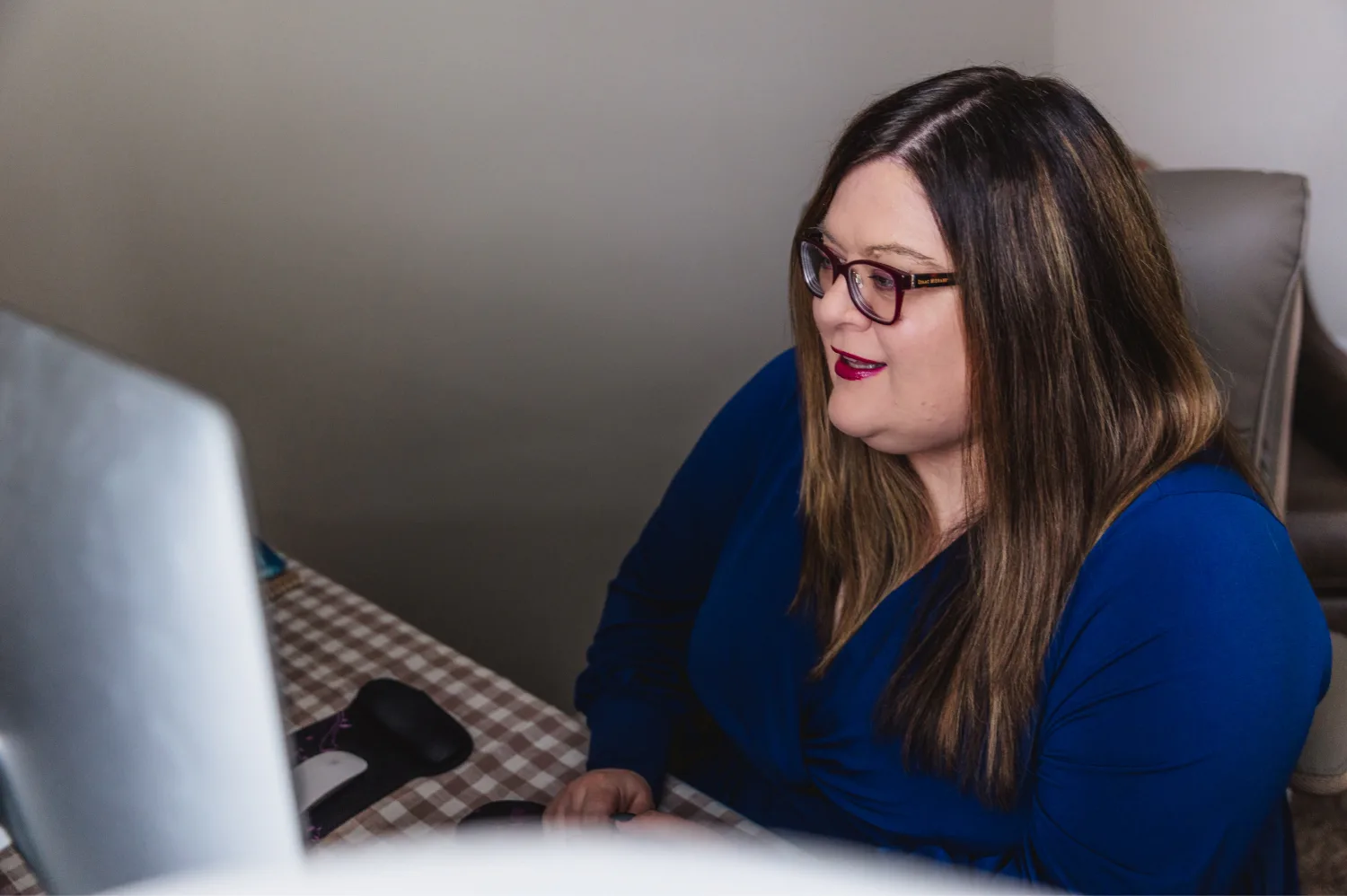
“That obsession just kind of drove me.”
In 2014, Maggie Lawson asked Becca to teach a class on independent publishing as part of a Writer’s Academy. In that class, Becca couldn’t help but also talk about strengths-based strategies specific to productivity for writers. Over the years, she’d become obsessed with sharing what she’d learned, even becoming certified to be a CliftonStrengths coach herself.
The writers in that class had similar transformations to the one Becca had during her first coaching session, and the course got so popular that Becca hired an assistant and created her own course called Write Better Faster.
It was an intensive live class that took up most of her time, especially because it also included personalized and individual coaching. Her fiction writing took a back seat, but she didn’t mind, because ever since she’d had her own coaching session, she’d longed to share that experience with as many people as possible.
She’d already kind of been doing it for years: on airplanes, in conversations with friends, constantly trying to understand how people operated, and encouraging them to move toward what was working for them and to not berate themselves for what wasn’t.
It bothered me so much to see people making decisions and feeling guilty for things they had no business feeling guilty for.
I just wanted to be able to give everyone the gift that I’d been given, the freedom to be who you are and not worry about what other people think about you or whether other people approve of what you’re doing. They don’t know you, they’re not living inside your skin, so it doesn’t matter what they think about you.
I became obsessed with, How do I put this information in a way that will help people get to where they need to have this level of clarity? And then that obsession just kind of drove me.
This growing sense of mission also inspired her to write a series of non-fiction books based on the questions and solutions that were coming up over and over again in the courses.
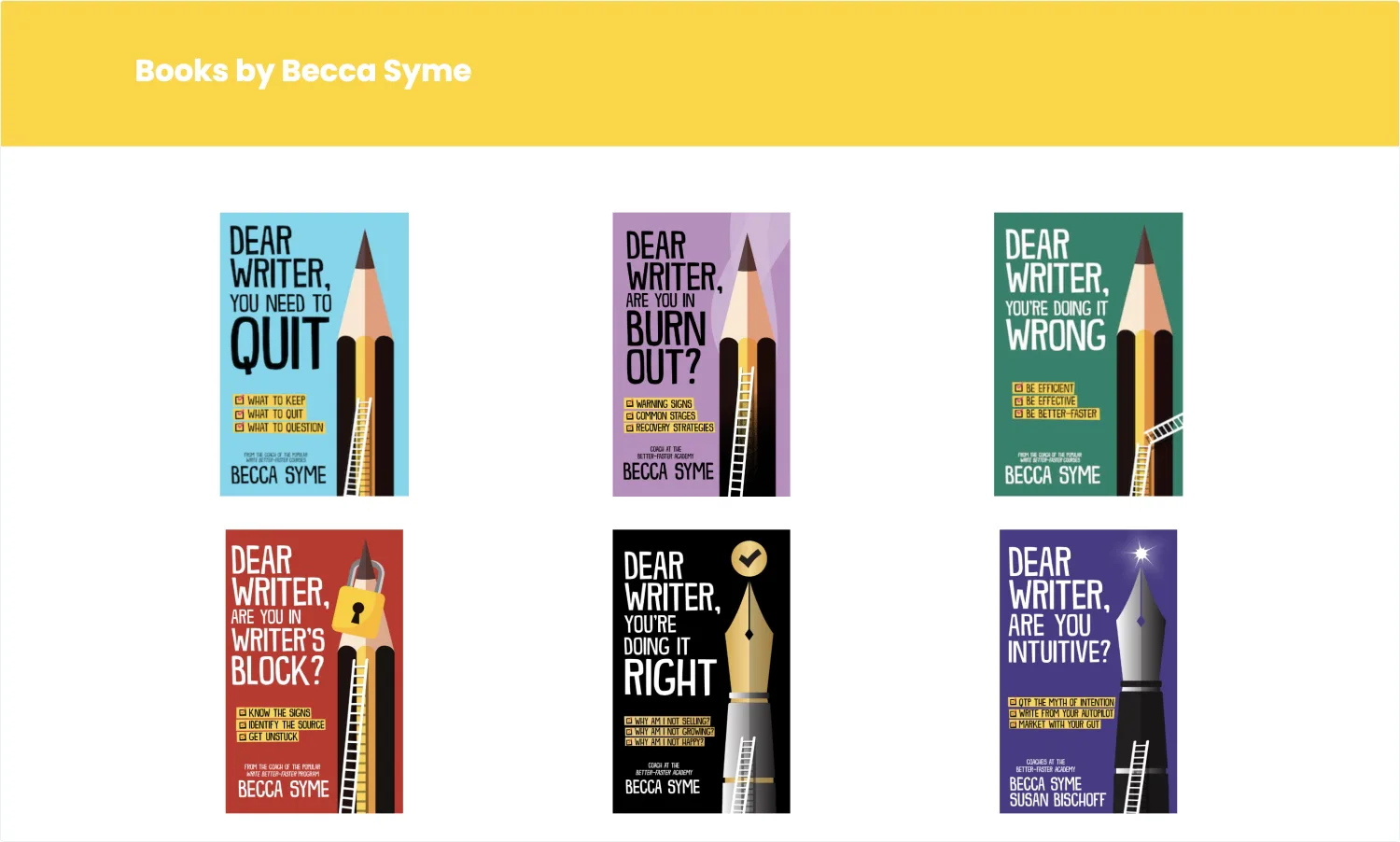
And while she wasn’t doing this for money (she was already making a good living writing), her new course and coaching took her business to three quarters of a million dollars in annual revenue. And at that time, she hadn’t really even done any marketing.
“I just don’t like to sell.”
At that time, Becca’s course and coaching programs were completely driven by word of mouth. Like Becca, people were so grateful to receive this information that they naturally told everyone they could about it, often other writing friends who signed up for Becca’s course.
Becca also started the “Dear Becca” newsletter as a way to coach people for free since she didn’t have the bandwidth to coach everyone who wanted coaching.
She also knew coaching was expensive and not everyone, especially writers and creatives, could always afford it. In each newsletter she offers coaching advice to people who write in, and emails it out (with permission of course) so that everyone can benefit from the answer.
And even though the newsletter is hard to find ( tucked away on her website and in her books), through almost exclusively word-of-mouth marketing, Becca’s business expanded rapidly, and she hired eight coaches so she could meet the growing demand.
The audience growth also meant she and her team felt they’d outgrown their current email marketing platform, and they decided to make a change.
We knew we needed a more robust tool for how to handle the growing audience. And Kit’s focus on helping creatives was a big part of why we switched.
And when Becca started using Kit for the first time, the A/B testing functionality at the top of each email stood out to her, a way to test two different subject lines and see which one was most effective in getting someone to open the email. Inspired, Becca started testing some of her long-held assumptions.
“We have a running joke in my company,” she says laughing, “that Becca doesn’t like to market.” An artist at heart, marketing was never something she enjoyed doing. She preferred to just do the work, genuinely solve problems for people, and hope they talked about it. That had worked so far, but her marketing director was working to help her see that marketing would also give them the chance to help even more people.
With that in mind, Becca decided to start using A/B testing, specifically to test the way she would naturally write a subject line versus what her marketing director Crystal would write.
At first, Becca was secretly hoping to prove “we don’t have to market in order to sell stuff.”
But in her A/B testing results, her marketing director Crystal’s headlines always “won.”

“I’m always wrong,” she laughs. “And it’s possible we could have done A/B testing in other platforms but it’s so prominent in Kit that it really helps me to test my instincts. And it’s actually making me make slightly different decisions about how we’re handling marketing in the future, because my instincts keep getting proven wrong.”
Not that she ever thought she was a selling whiz:
I suck at it. I didn’t even have a sales funnel until one of my friends was like, “if you don’t have a funnel, you can’t sustain this business.” I just don’t like to sell. What has sold our classes is that they work and so people talk about them.
But, as Crystal keeps pointing out to me, and as Kit is showing me, we could sell even more if we actually did advertising and promotion, and we could help even more people.
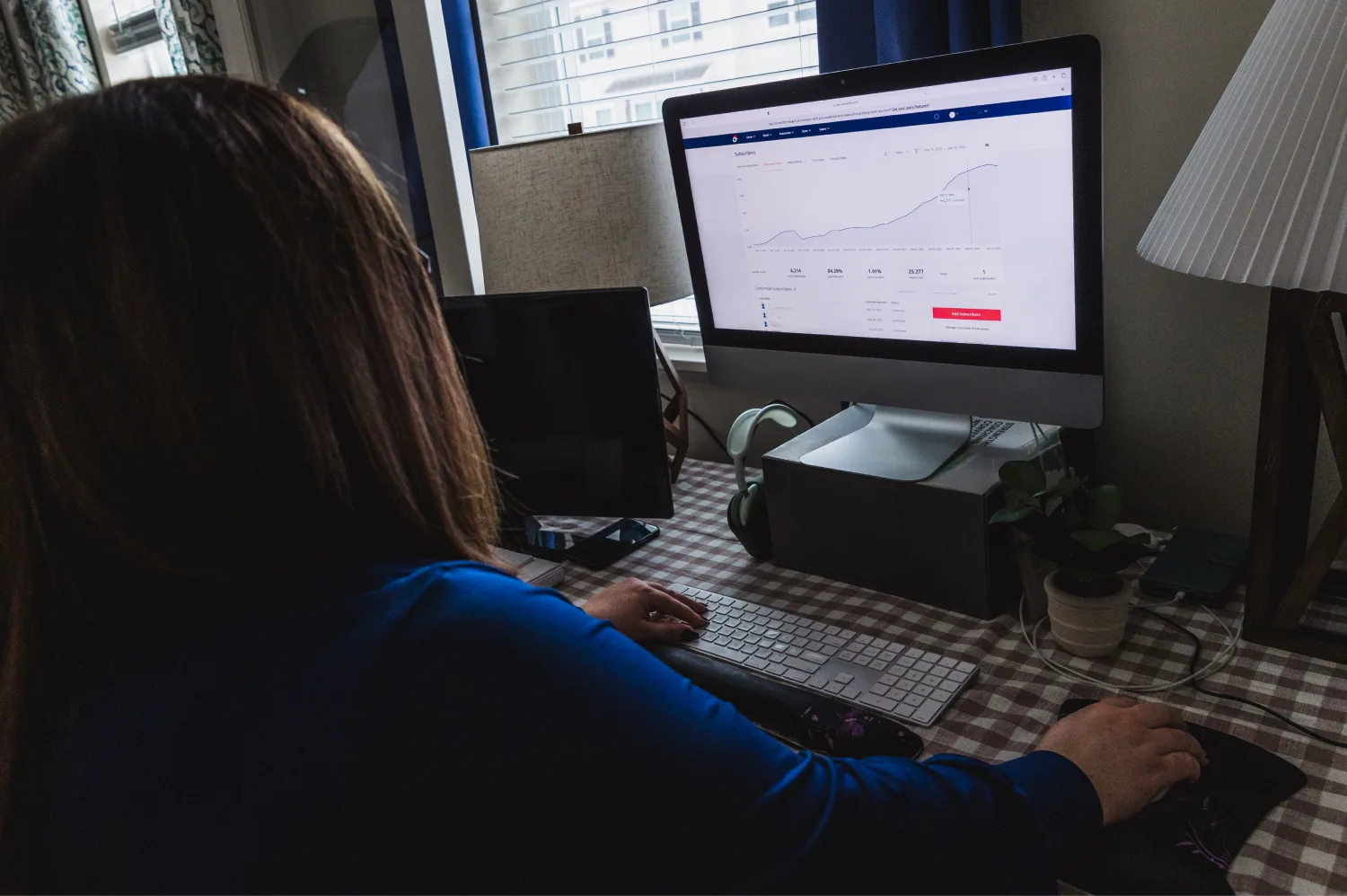
Becca also says that seeing in A/B tests how “wrong” she was was actually encouraging.
If I hadn’t had the opportunity to see just how wrong my instincts are about selling, I think I probably would still be holding on to this old mentality of ‘we can’t sell because it’s going to somehow ruin this natural, organic thing we’ve had.
But Kit has allowed me to be more aware of how much more beneficial it could be if I approached my business with a selling mindset; it’s like, do you wanna help more people or not?
This mentality led her to create a physical product she says she’d never have created or sold had she not switched to Kit. She made and sold a card deck through Kickstarter called The Author Stuck List (which will be available here starting March 1, 2023).
I had always resisted creating sellable products like workbooks and stuff like that.
But she’d learned through A/B testing that “sometimes it is better for there to be more clarity about what the product entails rather than more artistry. And then more people get to benefit from this thing that you’ve poured your heart and soul into.”
The Author Stuck List was the first product she created and intentionally marketed to everyone, and while the public launch will happen later in 2023, the initial Kickstarter raised 40K.
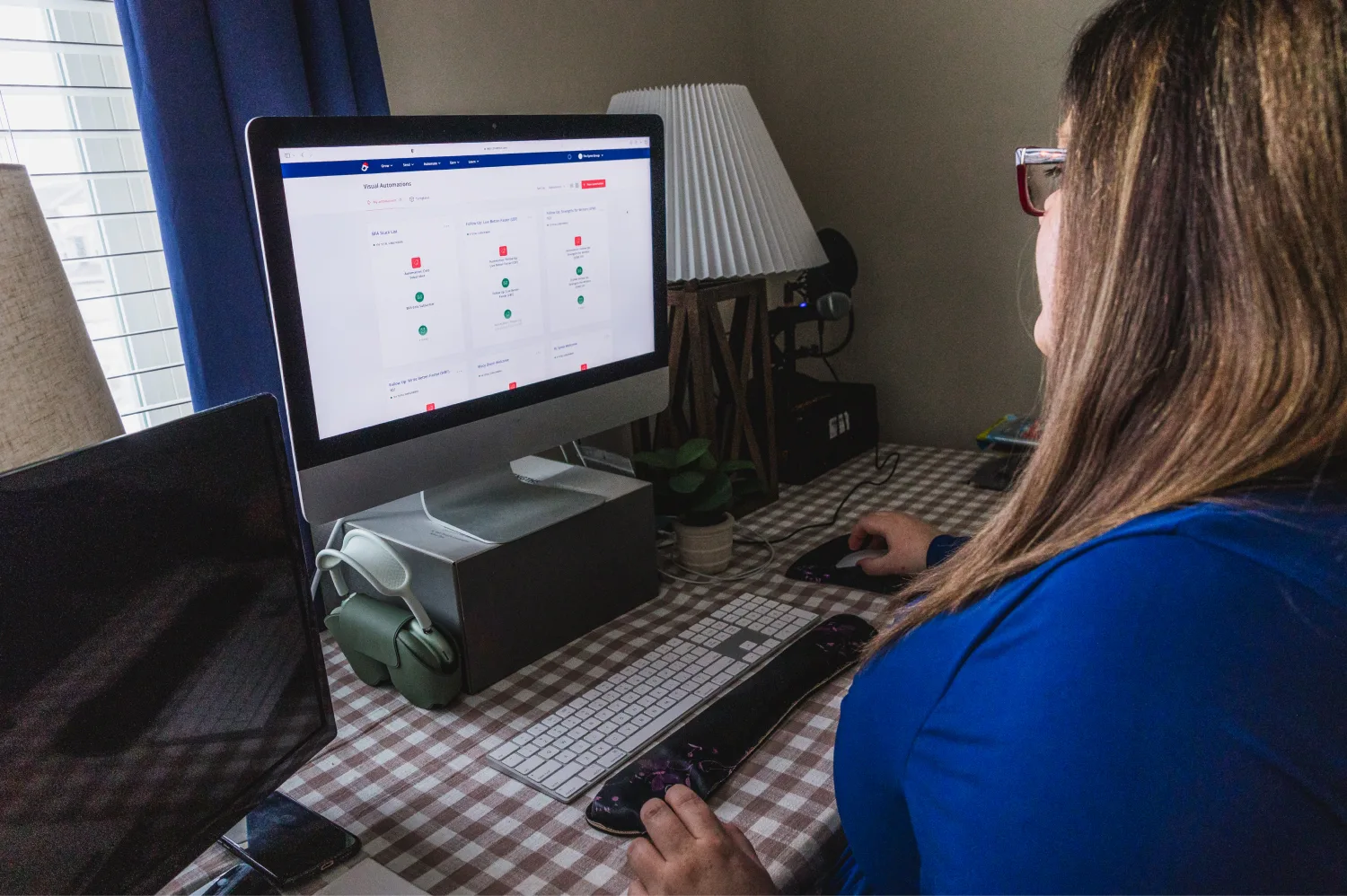
“Is that actually going to make you happy?”
Another benefit to marketing her business has been the ability it’s given her to afford quality hires that have also given her more time to write fiction again.
I hire great people, and give them the responsibility and freedom to do what I need them to do without me managing them. If I continued to manage them after I gave them the work to do, I wouldn’t be writing any fiction at all, I would be managing people all the time, and I don’t wanna do that.
It’s not an easy thing to find, but she believes it’s worth it to take the time up front to hire the right person, which always gives her more time back later.
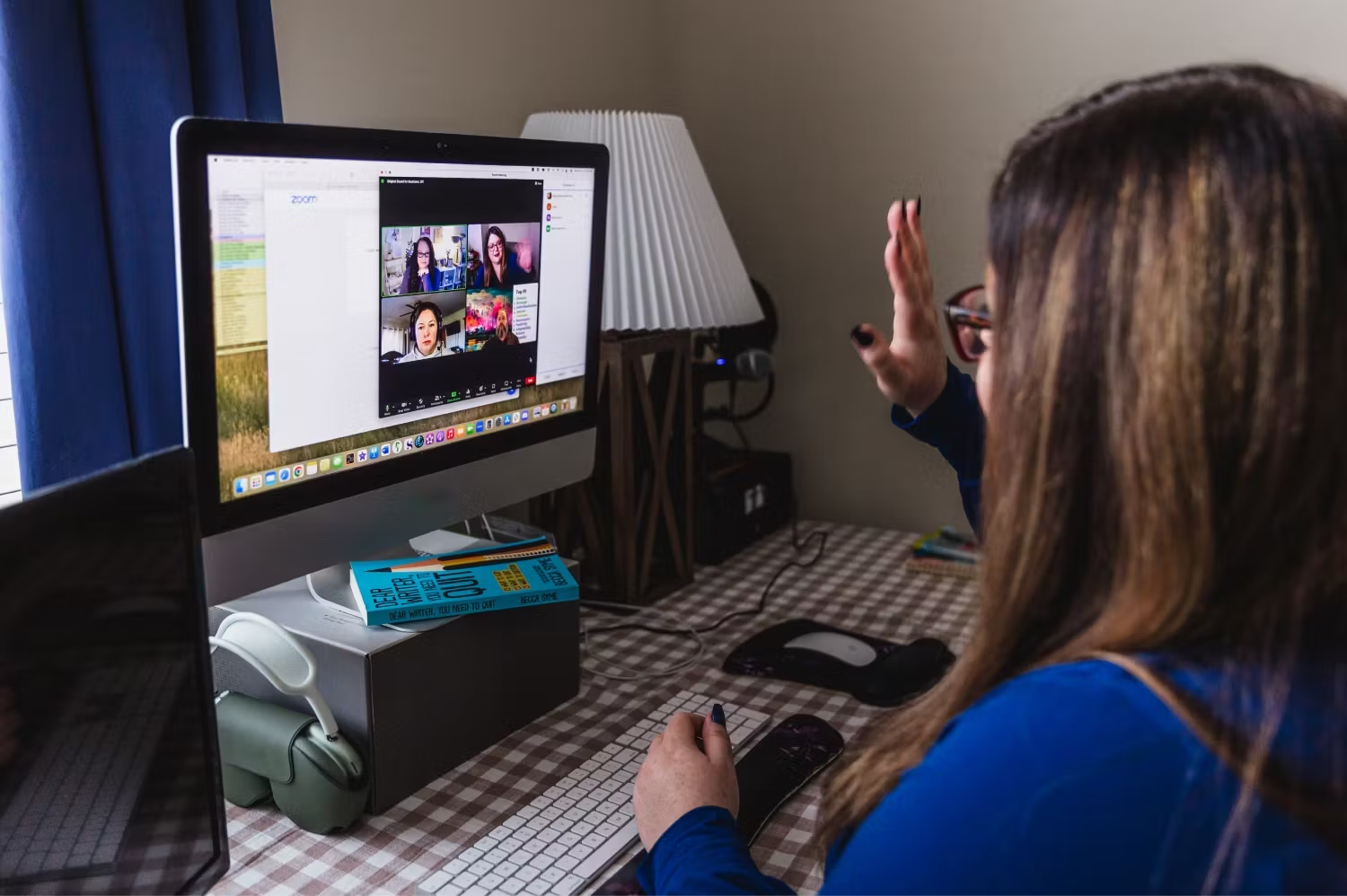
Making good hires has also helped her a lot when it comes to creating boundaries that negate burnout, a topic she helps creatives with in coaching sessions often.
Creatives are prone to burnout, and one of the most frequent issues she sees in coaching sessions is creatives feeling like they need to say yes to everything, especially, of course, really great opportunities.
But I always ask, “Is that actually going to make you happy? Are you going to enjoy that level of work? Is that going to fulfill you?
And if it doesn’t, then is it worth killing yourself over?
Becca still asks herself these questions too. And now that she’s been a full-time creator for well over a decade, the one question that continues to move her forward and make decisions, is this:
Am I doing what I’m here to do, in the best way I can possibly do it?
I believe so strongly each of us are here for a reason and to be who we are. If we aren’t being who we are, we’re depriving the human family of the connection of us, and the gifts we can offer.
She almost starts crying as she says this, and it’s clear she’s not just talking about herself, but her hopes for every creative she coaches, and every one she doesn’t. It’s almost as if she longs to keep doing this work until no one feels like she did growing up, like who they are is not enough.
I wasn’t sure I was going to be able to feed myself as an adult because I felt so unsuccessful, disconnected, and insecure.
I knew I wanted to do something great, but I was convinced I’d never be able to.
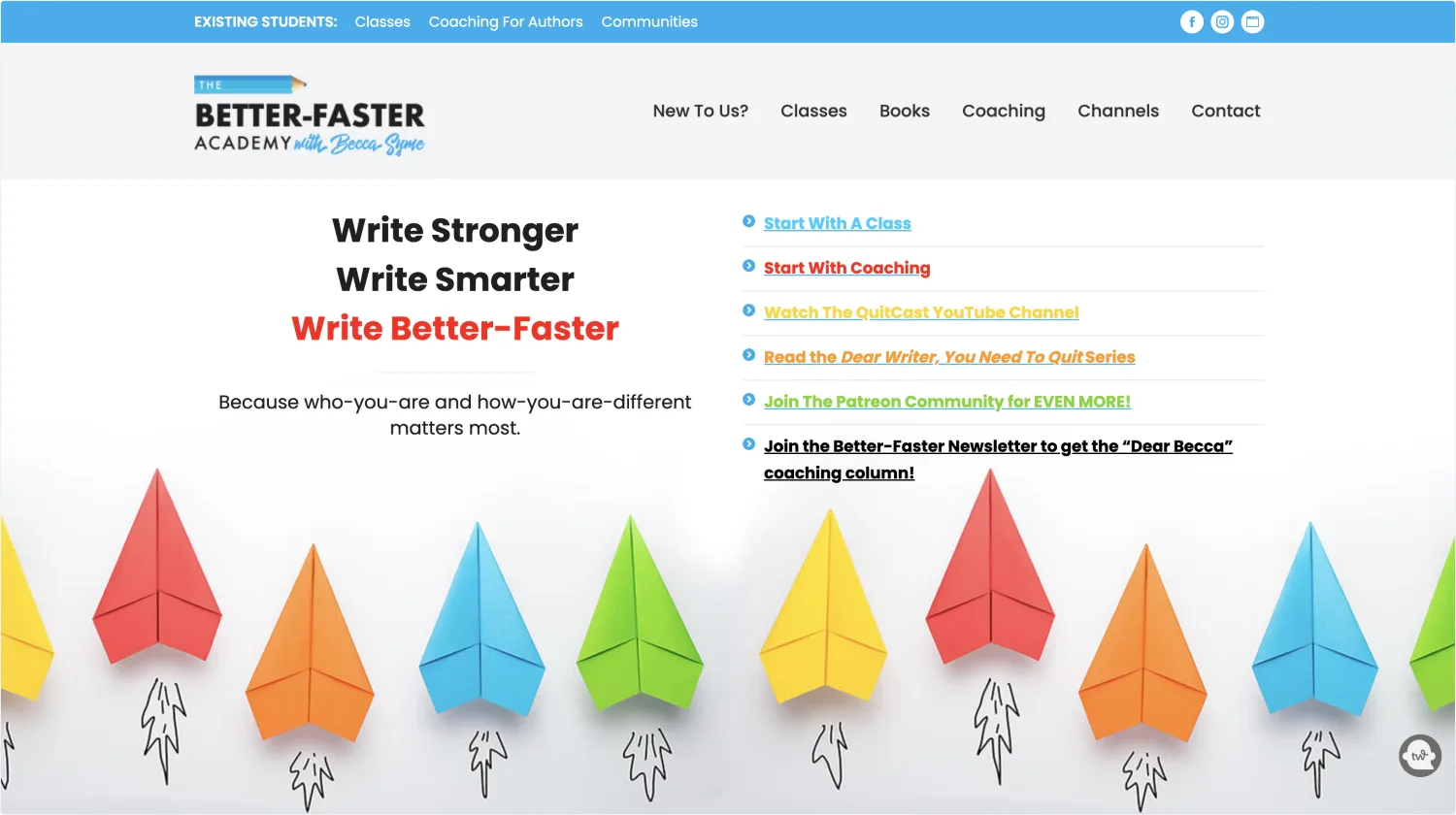
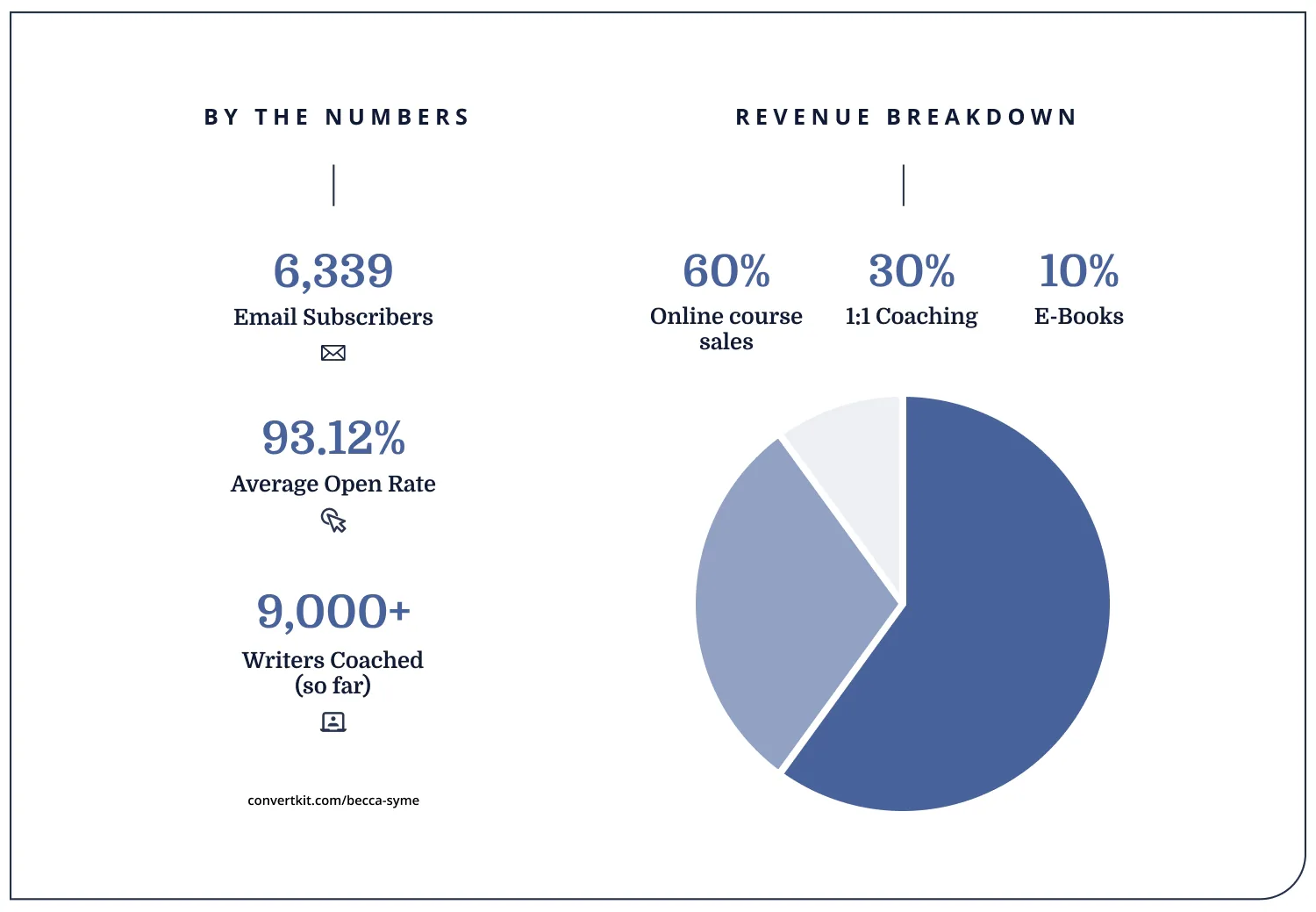
Recently, her dad sat across from her on the couch, looked her in the eyes, and said, “I have never been more proud of you. What you have accomplished is so amazing.”
Becca says her parents have always been incredibly proud and supportive, but something about this moment, him complimenting all of the success and decisions she’s made as a creator, meant even more.
I always knew my parents loved me unconditionally, but I actually do want them also to be proud of the work I do.
I am so grateful to be loved when I’m a mess and a failure, but it’s also not wrong to want to be loved for being a success.
Becca gives herself the same grace she tries to impart on others: that you’re not wrong for what you want, or the way you are.
To date she’s achieved things beyond her wildest dreams, and all without doing a strict morning routine. Her morning preparation, she says, is this:
I wake up, and start breathing, and I’m ready.
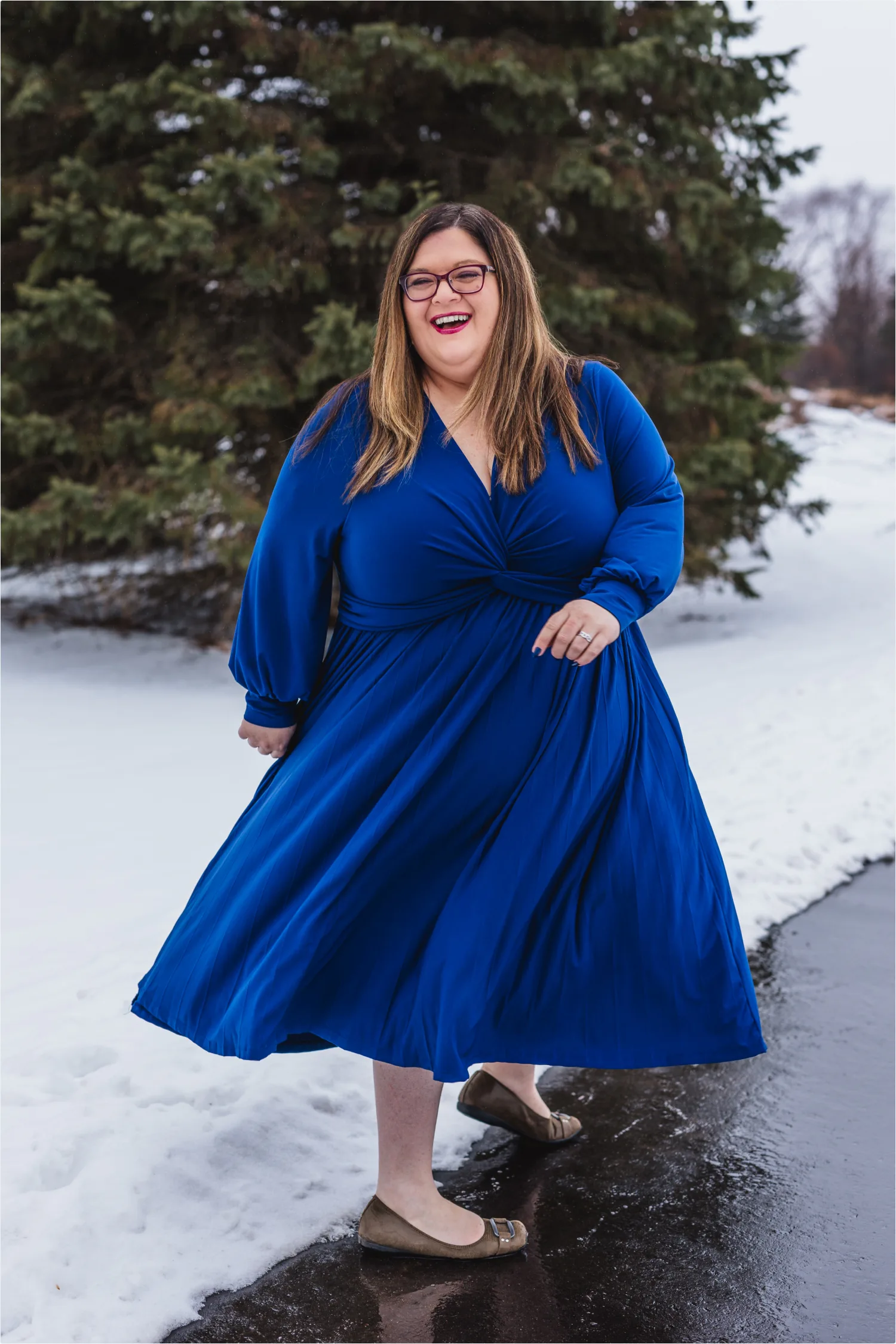
Disclosure from the author: In 2021 I paid for (and loved) Becca’s Write Better Faster course, and hired her as a coach for a few months.
